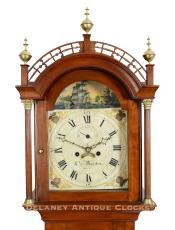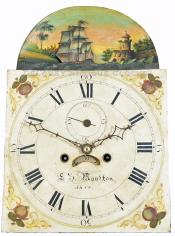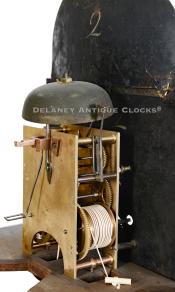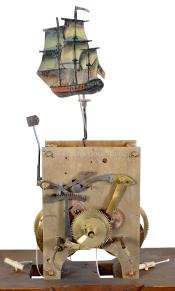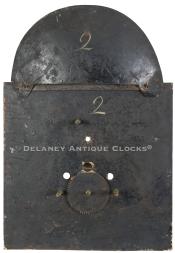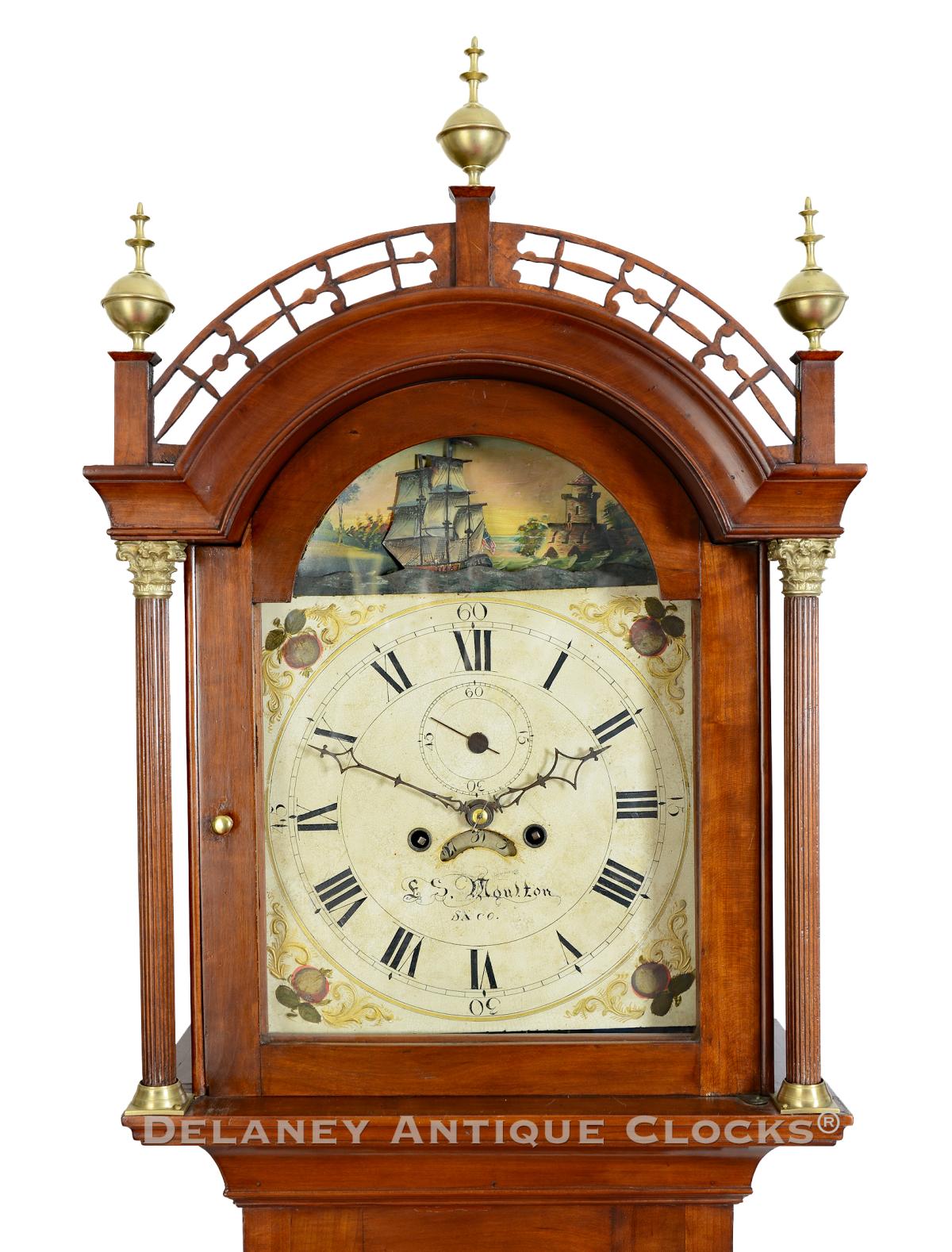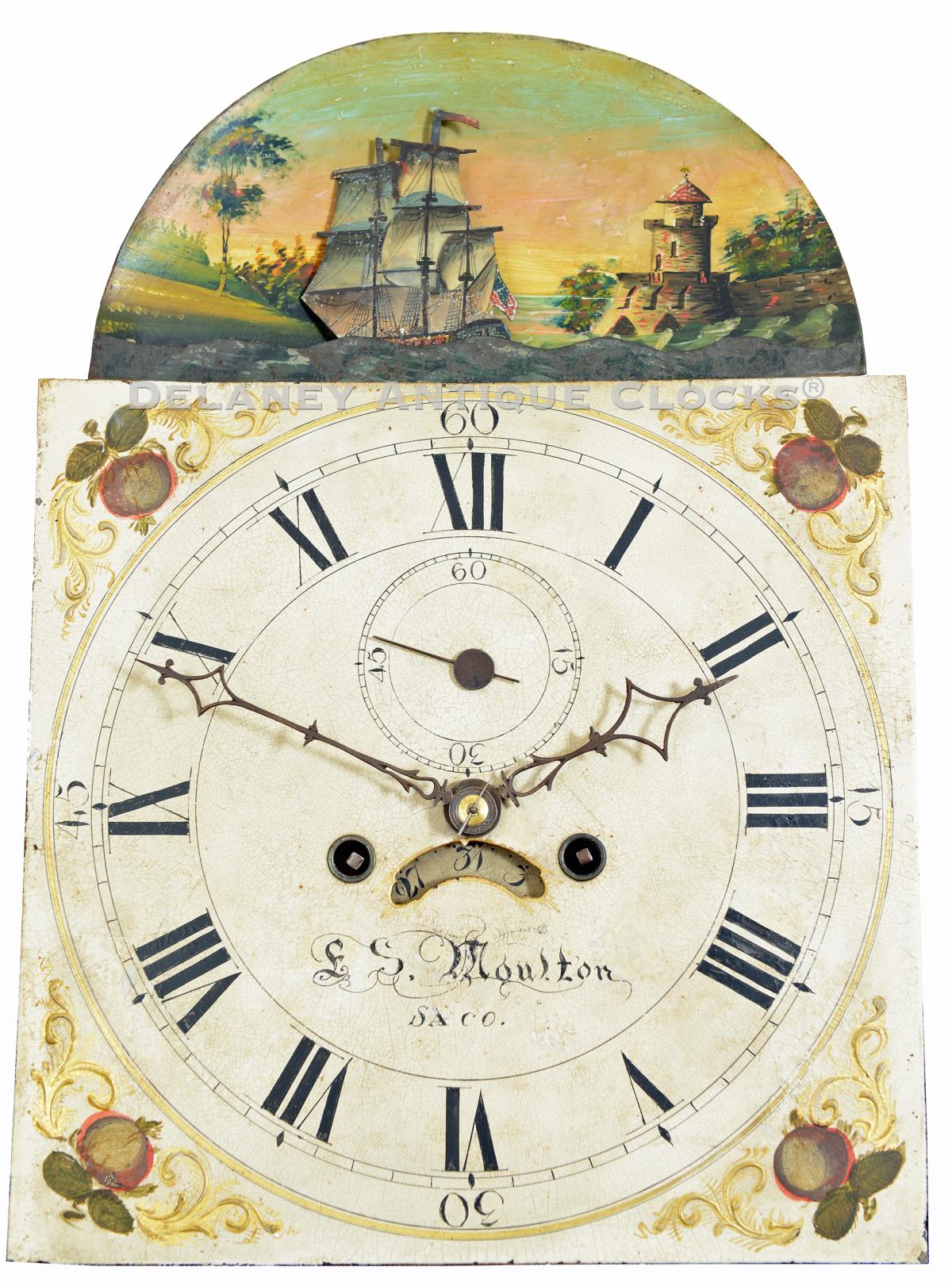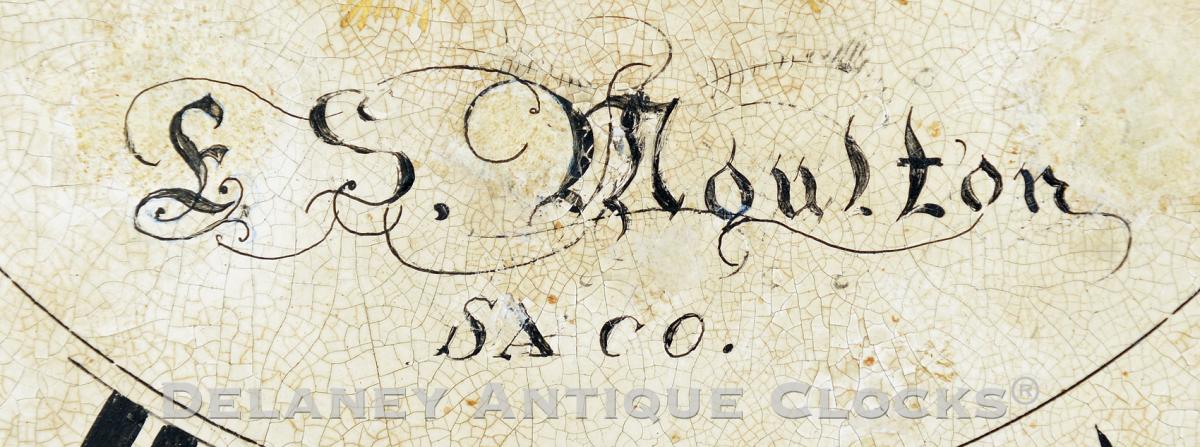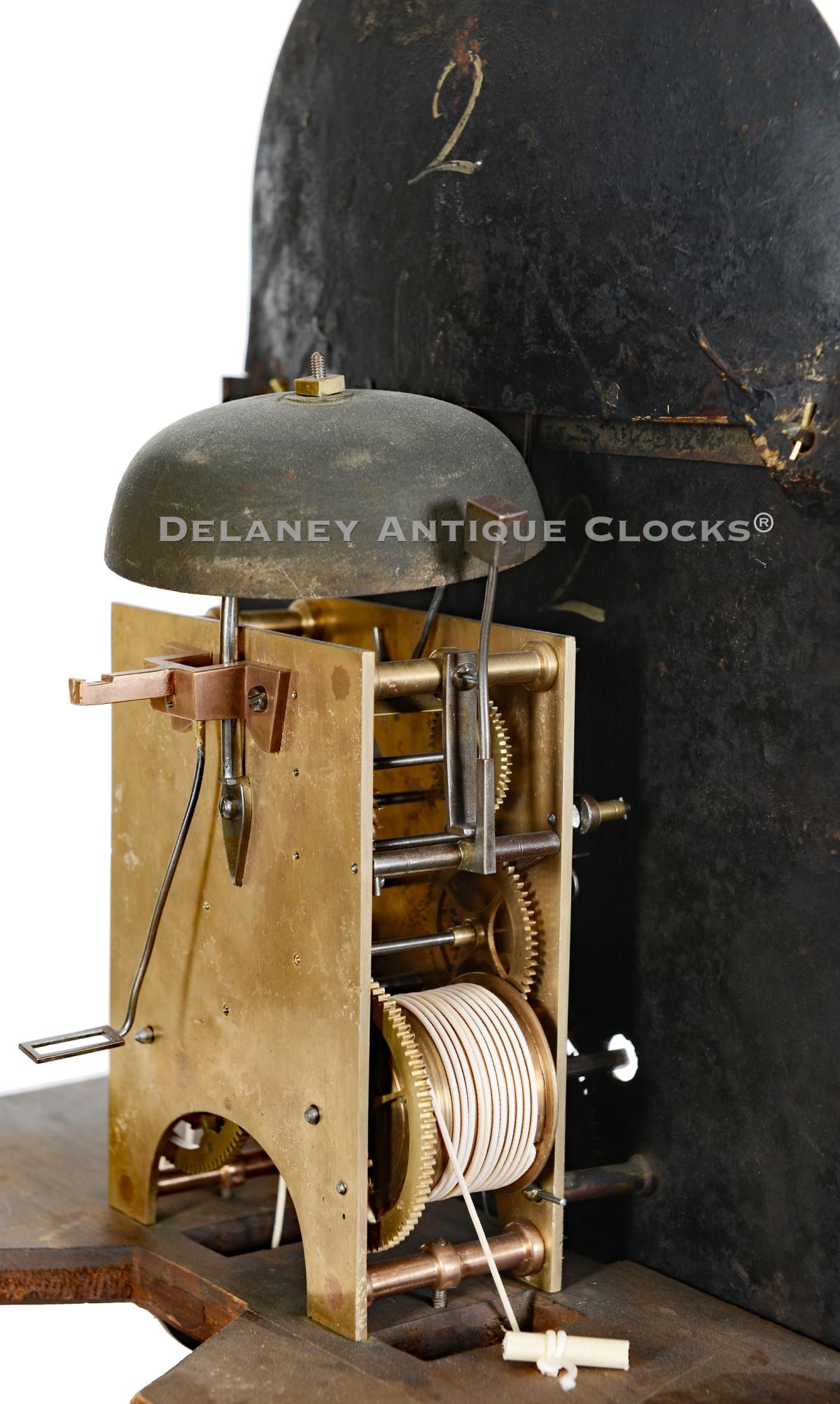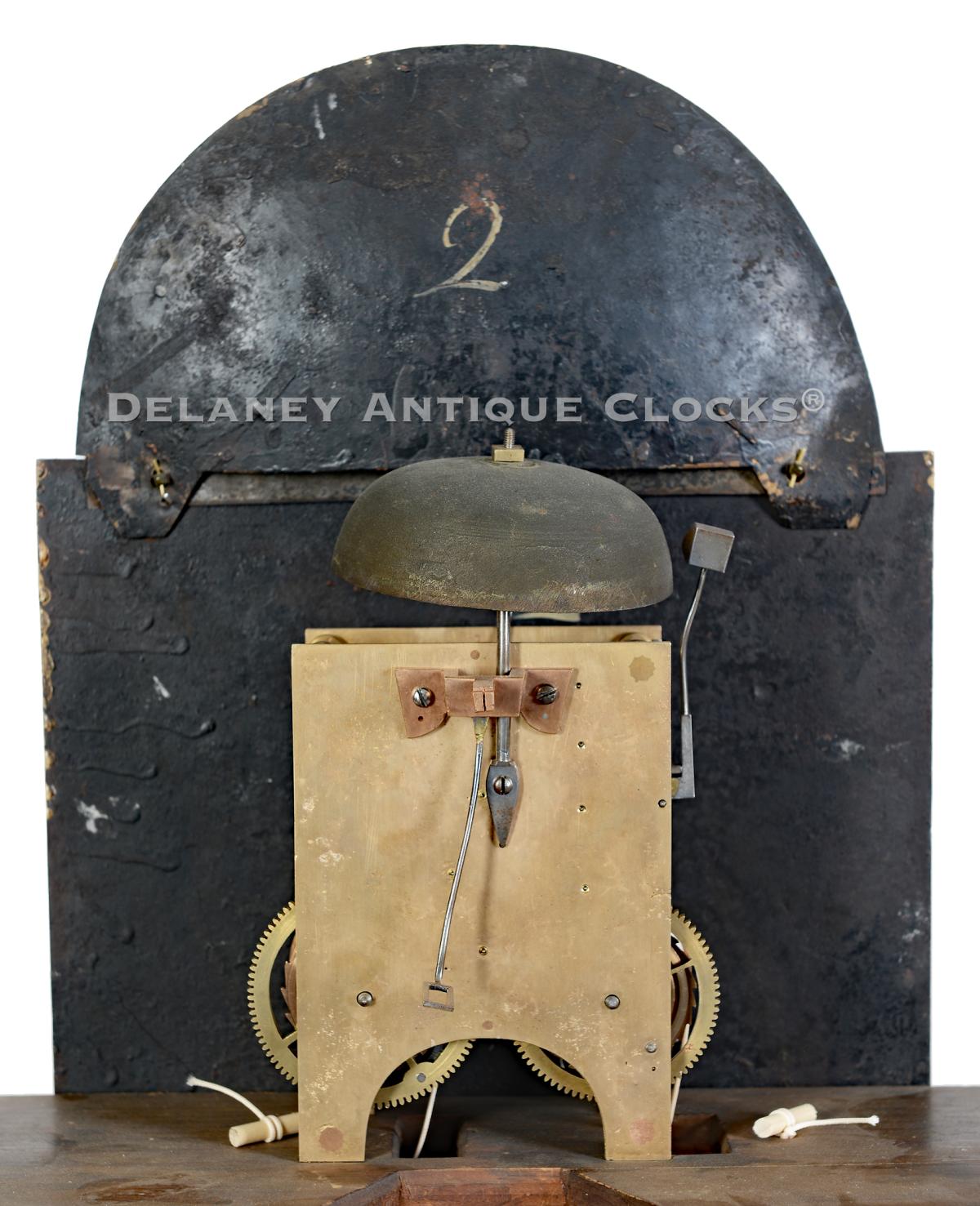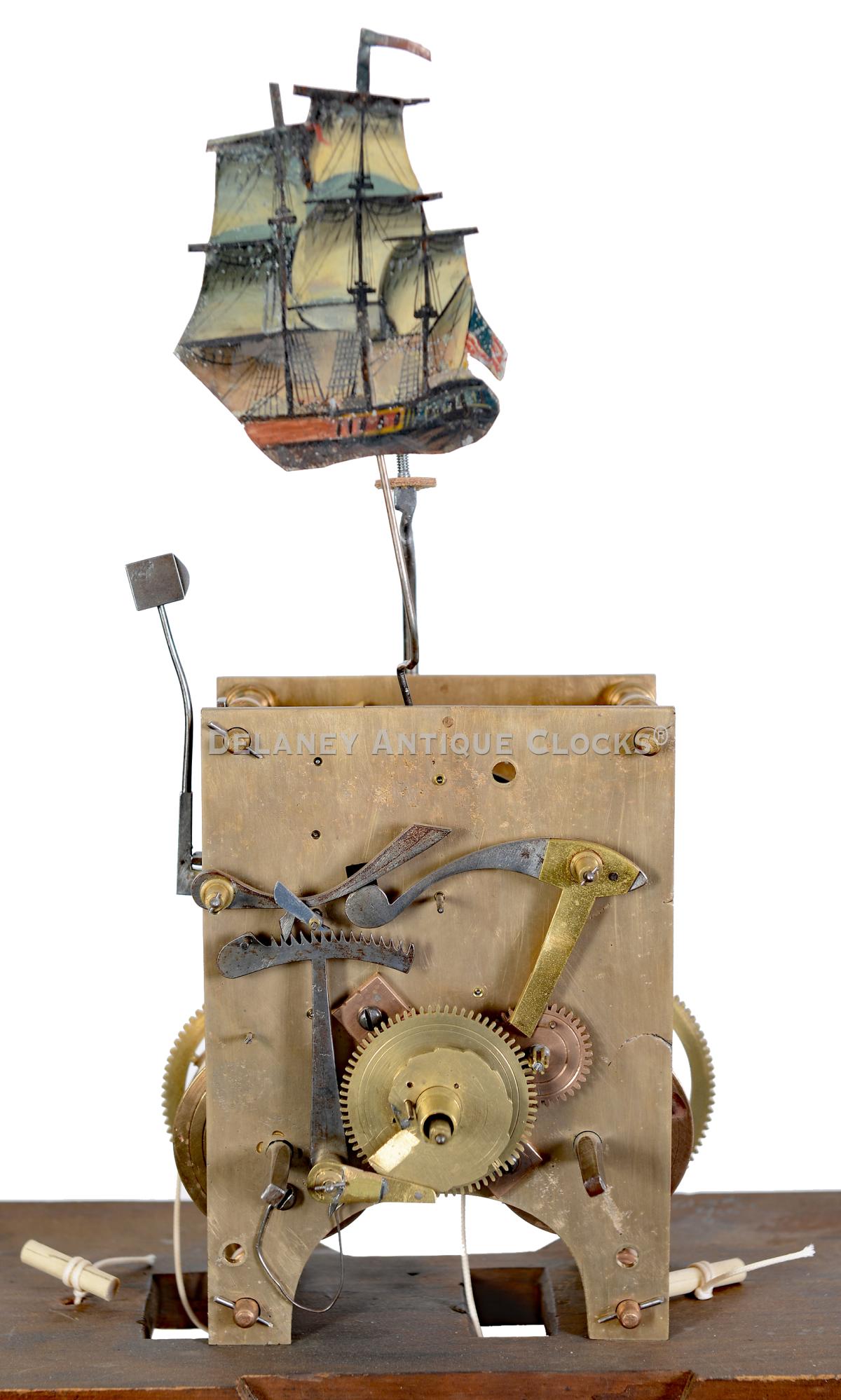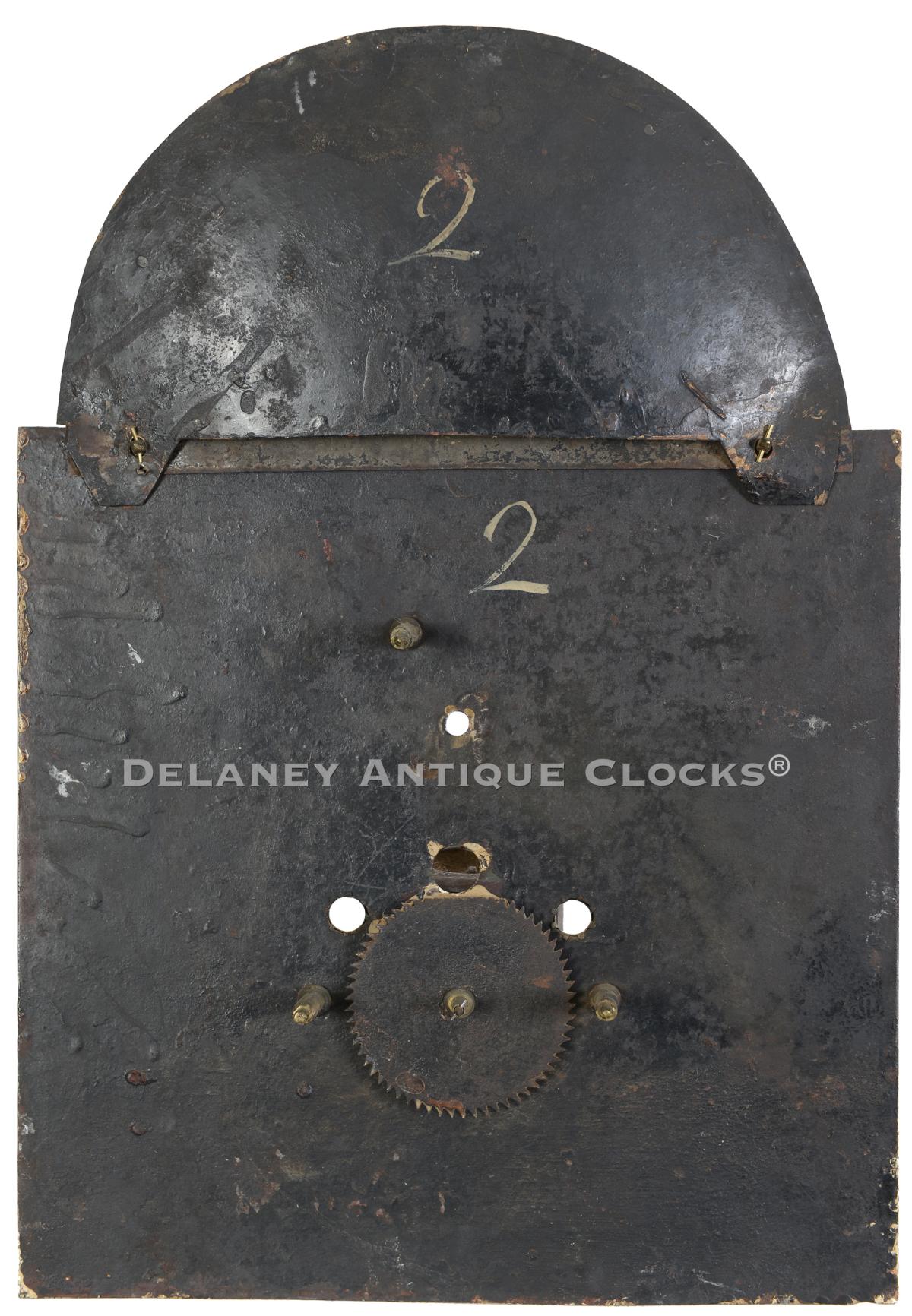Edward Moulton of Saco, Maine. A cherry case tall clock featuring a rocking ship automated dial. CCC-64.
The case is constructed primarily in cherry and features a clean, modern finish that enhances the natural color of the cherry wood. This Saco, Maine case example stands on flared French feet. A drop apron is formed in the center and hangs below the base. The base section is formatted with an inset panel. This inset design is a construction feature favored by the Saco cabinetmaker Abraham Forsskol. The framing is broadly formed, and the interior edge features a beaded molding. The waist section is long. Centered here is a rectangular-shaped waist door trimmed with applied molding that provides access to the case’s interior. Finely reeded quarter columns are inset into the front corners of the waist. These terminate in brass quarter capitals. The hood is fitted with an interesting pierced and open fret design. The basic shape conforms to the arch of the hood. Three finial plinths support this pattern. Each plinth supports a bass ball-and-spike finial. Finely reeded turned hood columns support the molded arch at the front corners of the hood. These are free-standing and are mounted into brass capitals. The upper capitals are a Corinthian form. Oval-shaped side lights decorate the sides of the hood. The hood door is also arched. This is fitted with glass and opens to access the dial.
This iron dial is of Boston origin and was painted by one of the Nolen dial painting partnerships. As is the tradition, it is colorfully paint-decorated. Apples are located in the four spandrel areas. These are framed with raised gesso scrolling and highlighted with gilt paint. A gilt circle frames the time ring. The quarter hours are marked with Arabic numerals. A segmented minute ring separates them from the Roman-style hours. A subsidiary seconds dial and a day-of-the-month calendar are in traditional positions. This clock is signed “E. S. Moulton / SACO” below the calendar. The steel hands are wonderfully formed and display the time. The automated feature of a rocking ship is located in the arch or lunette of this dial. The painted ship is depicted flying an American flag. This ship moves or rocks gently from side to side with the pendulum's motion. The painted scene behind the sailing ship includes a tower built on a peninsula. This nautical theme is painted on a slightly convex piece of metal, which adds to the scene's visual depth.
This beautiful clock measures approximately 7 feet 2 inches tall (86 inches) to the top of the center finial.
Edward Moulton made this clock circa 1815.
Inventory number CCC-64.
Edward Sherburne Moulton was born in Portsmouth, New Hampshire, on October 15, 1778, the son of Joseph (1743-1808) and Linda (Bickford) (1743-1818) Moulton. He is listed in Paul Foley’s book, Willard’s Patent Time Pieces, as a clockmaker and silversmith. Moulton started his career as a clockmaker in Rochester, New Hampshire, in 1801. He married Mary Leighton on May 15, 1803. In 1807, James C. Cole began his apprenticeship under Moulton. Around 1813, Moulton sold his business to Cole and moved to Saco, Maine. In 1829, he served as the town’s Fire Warden. From 1830-1855, he was the director of the Mutual Fire Insurance Co. Moulton is primarily known for making tall case clocks. Many of these are housed in cases thought to have been constructed by Abraham Forsskol of Saco. Additional tall case clocks, timepieces, pocketwatches, and watch papers are known. A tall clock signed with the location of Alfred, Maine, is also known. Edward Moulton died in Saco on August 16, 1855. He is buried in the Laurel Hill Cemetery.


